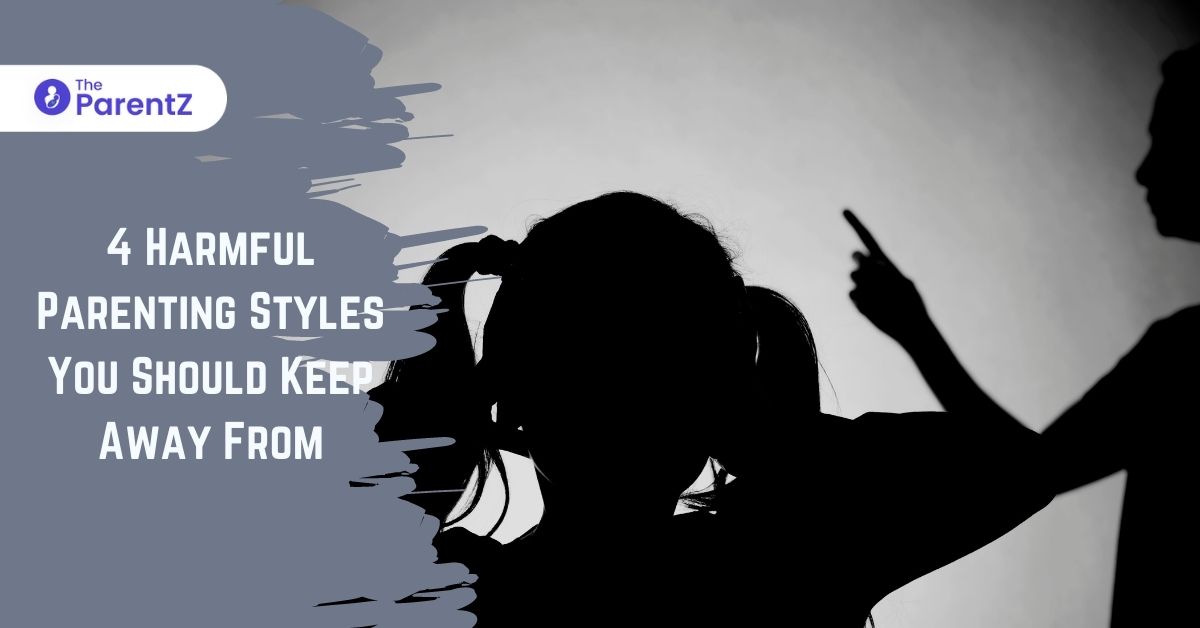Your Parenting Style Can Harm Your Children: Here’s What You Need To Know!
Parenting is easily one of the greatest and toughest responsibilities we ever experience in our lives. There are benefits and pitfalls, both with potentially massive consequences that our children have to face. While no sane parents in the world would intentionally go out to harm their own children, our parenting styles may involve some of the most common parenting mistakes. Let’s talk about four such styles that can seriously harm our children’s growth and development.
Harmful Parenting Styles
1. Over-Protective Parenting
The need to protect and look out for our children is a natural tendency most parents experience. However, the way we choose to act on it makes a huge difference to the way our children turn out. It is important to let go of our kids and allow them to grow independently after a certain age. Nurturing independence in children is emotionally taxing but worth the effort. Failing to do this is likely to significantly raise the chances that our kids will grow into clingy and needy adults.
2. Suspicious Parenting
It’s sad that this is common and severe enough to be considered a parenting style instead of a common parenting habit. Suspicion is not a bad thing to feel, in fact, it might at times come in handy while dealing with teenagers. However, like it is with any other aspect of a parent-child relationship, overdoing this can be quite harmful. Children might start feeling unworthy of trust or, worse yet, they may start lying. Feeling constantly undermined or picked on will nurture major trust issues in children, turning them into insecure, lying adults.
3. Abusive Parenting
While this is not an easy thing to accept about ourselves, we may sometimes find that our parenting style is bordering on being unhealthy. If you frequently use physical violence to get your child/children to do as you say, that is abusive parenting. Emotionally blackmailing children, belittling them and refusing to let them develop independent thought processes all constitute abuse. These parenting practices give rise to toxic parent-child relationships. These are unhealthy for all involved. Since abuse is cyclic, children subjected to abuse will most likely grow into abusive adults. They tend to grow up with a corroded sense of self and very low confidence. As adults, they may try to over-compensate for it by either being an absolute rebel or a complete pushover.
4. Pushy Parenting
Every parent wants his or her child to be the best at what they do. It is not only normal but also expected of parents to encourage and push their children to do better. However, the very same habit can become more than a little harmful if extreme care is not taken. There are two types of criticism: constructive and destructive. Constructive criticism helps kids understand how and where they can improve themselves. Destructive criticism undermines their self-esteem by labelling them as incapable or “not good enough”. This is by far the most dangerous parenting style, for it puts immense pressure on children to outperform themselves. It promotes the thought that they’re inadequate people, which over time can develop into suicidal thoughts and tendencies.
It is important for every parent to be aware of such harmful parenting styles so that they can avoid doing it. Instead, parents can educate themselves on healthy parenting habits to help them along the way.








Be the first one to comment on this story.